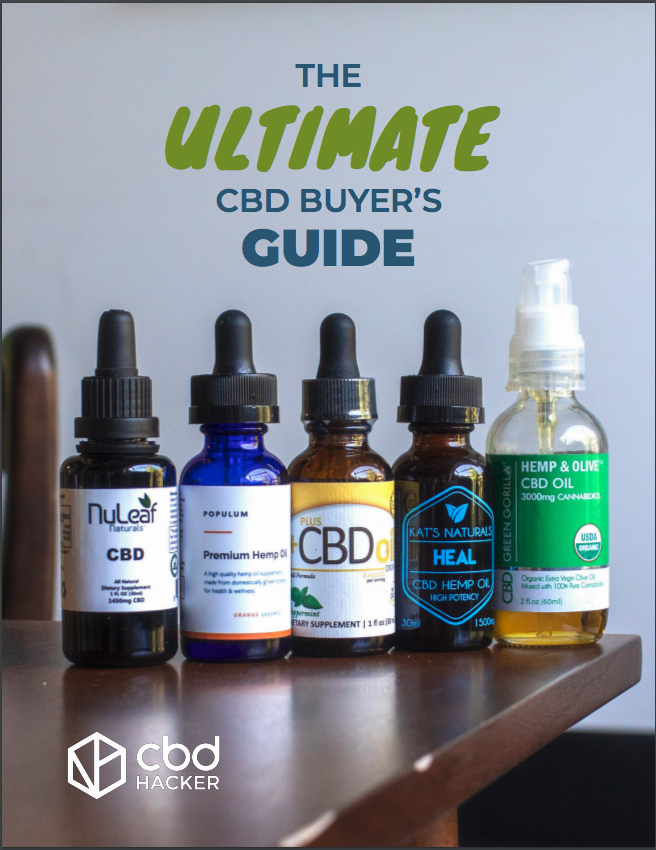Over the last week, the Food and Drug Administration has updated CBD customers and stakeholders on where things currently stand for CBD regulation after the public hearings that took place on May 31st.
Since the passing of the 2018 Farm Bill, the CBD industry has been waiting on tenterhooks to see how the FDA will regulate the now legal substance, particularly with regard to CBD-infused food and beverages.
The agency’s lengthy statement outlines the issues at stake in CBD regulation. The main takeaway? The FDA is committed to a science-based approach to regulation that both protects consumers and leaves flexibility for the use of CBD outside of the drug setting.
Major concerns the agency cites include possible drug interactions, safety concerns for at-risk populations, long-term exposure, and safe dosing.
The task force working through these issues is expected to have recommendations for FDA regulation by the end of the summer. From the perspective of the CBD industry, certainty about the future of regulation can’t come too soon.
This Week’s Top CBD Deals
NuLeaf Naturals
Discount: 20%
Code: cbdhacker
Pure Hemp Botanicals
Discount: 15%
Code: cbdhack15
Populum
Discount: 15%
Code: Hacker15
4 Corners Cannabis
Discount: 15%
Code: Hacker15
Plus CBD Oil
Discount: 15%
Code: CBDHACKER
CBDmd
Discount: 15%
Code: 15CBDH
Payment processing continues to be a major issue for the CBD industry. On Wednesday, Thrive Market, an online seller of natural and organic products announced that it would stop selling CBD products at the demand of the company that processes its customer payments.
But according to a blog post written by Nick Green, CEO of Thrive, the company isn’t giving up on CBD: “Rest assured that we will be working behind the scenes in the coming weeks to get hemp products back on Thrive Market.”
In a related story, the US Hemp Authority, a hemp self-regulator that has taken leadership in developing certification standards for CBD companies, was dropped by its payment processor, Stripe.
The San Fransisco-based merchant processor stated that it dropped the Hemp Authority’s account due to liability concerns, even though the non-profit does not actually sell hemp or CBD products.
“We’re being told we’re high risk. We’re actually trying to minimize human risk,” responds Hemp Authority President Marielle Weintraub.
Facebook is being hit with a federal lawsuit for refusing ads that promote posts about CBD and an online cannabis event. The plaintiff is Cannaramic Media Inc.
Founder Felicia Palmer says that she paid Facebook to promote the posts, only to have the promotion blocked by the social media giant.
The lawsuit states that this activity demonstrates a “pattern of censorship and suppression of information and content pertaining to legal uses of cannabis across Facebook’s platform as well as that of the popular social media app, Instagram, also owned by Facebook.”
The lawsuit is being filed while Facebook is also the subject of a New York Times Square advertising campaign by the Hemp Industries Association. The campaign, which simply states “Facebook: Stop Censoring Hemp,” will continue through August 24.
More From CBD Hacker This Week
This Florida company promises a luxurious feel and the highest quality relief from all-natural CBD. Read our full review to learn more.
Pet Releaf: Premium CBD Products for Pets
For animal lovers who want the best CBD for their pets, Pet Releaf has you covered. We’ve got the details on this pet-centric CBD company.
Massachusetts farmers are expressing concern that the state’s restrictive hemp regulations will keep them from being able to compete nationally. While growing hemp has been legal in the state since 2016, a new policy statement put out by the state’s Department of Agricultural Resources, lays out a regulatory framework for the crop.
The new framework prohibits farmers from selling hemp flower meant to be used by consumers – either as dietary supplements, CBD-infused food, or smokeable hemp. CBD is currently the most lucrative area of the hemp industry, leaving Massachusetts farmers who have already invested in CBD out in the cold.
Luis Hummel, a southeastern Minnesota farmer, is facing felony charges for growing hemp with around 10 to 12 times the allowable amount of THC. Hummel was growing hemp to turn into CBD products. But he had his license revoked when law enforcement pulled over one of his distributors and tested the product, finding the THC to be well over the legal limit.
Along with losing his license, Hummel was ordered to destroy his crops, valued at more than $3 million. He was then charged with fifth-degree drug sale and possession of a controlled substance, as well as fifth-degree drug possession. Hummel has filed a federal lawsuit against the state to keep both his license and his crops.
The US Hemp Roundtable announced this week that there is hope for hemp in South Dakota. The announcement comes only a few months after Governor Kristi Noem’s veto of a bill that would have legalized hemp growth and product sales in the state.
Key legislative leaders, including Governor Noem’s Policy Director, have traveled to Kentucky to meet with US Hemp Roundtable leaders and the Kentucky Department of Agriculture. The group of legislators also visited hemp farms and processing operations, looking for a way forward for hemp in South Dakota.
Finally, as a reminder that hemp is also a big deal outside of North America, a plan to grow hemp on a massive scale in eastern Mongolia moved forward this week.
HempMongolia LLC began carrying out trials involving high CBD varieties of hemp, obtained from Spanish breeders and crossbred with Mongolian strains.
The inaugural grow is located near the city of Chinggis on the northern bank of the Kerlen Gol River. Hemp Mongolia has plans to lease 20,000 hectares in eastern Mongolia for hemp farming. “We are growing for seeds to use next year and biomass for CBD extraction,” said Anar Artur, CEO at HempMongolia.





